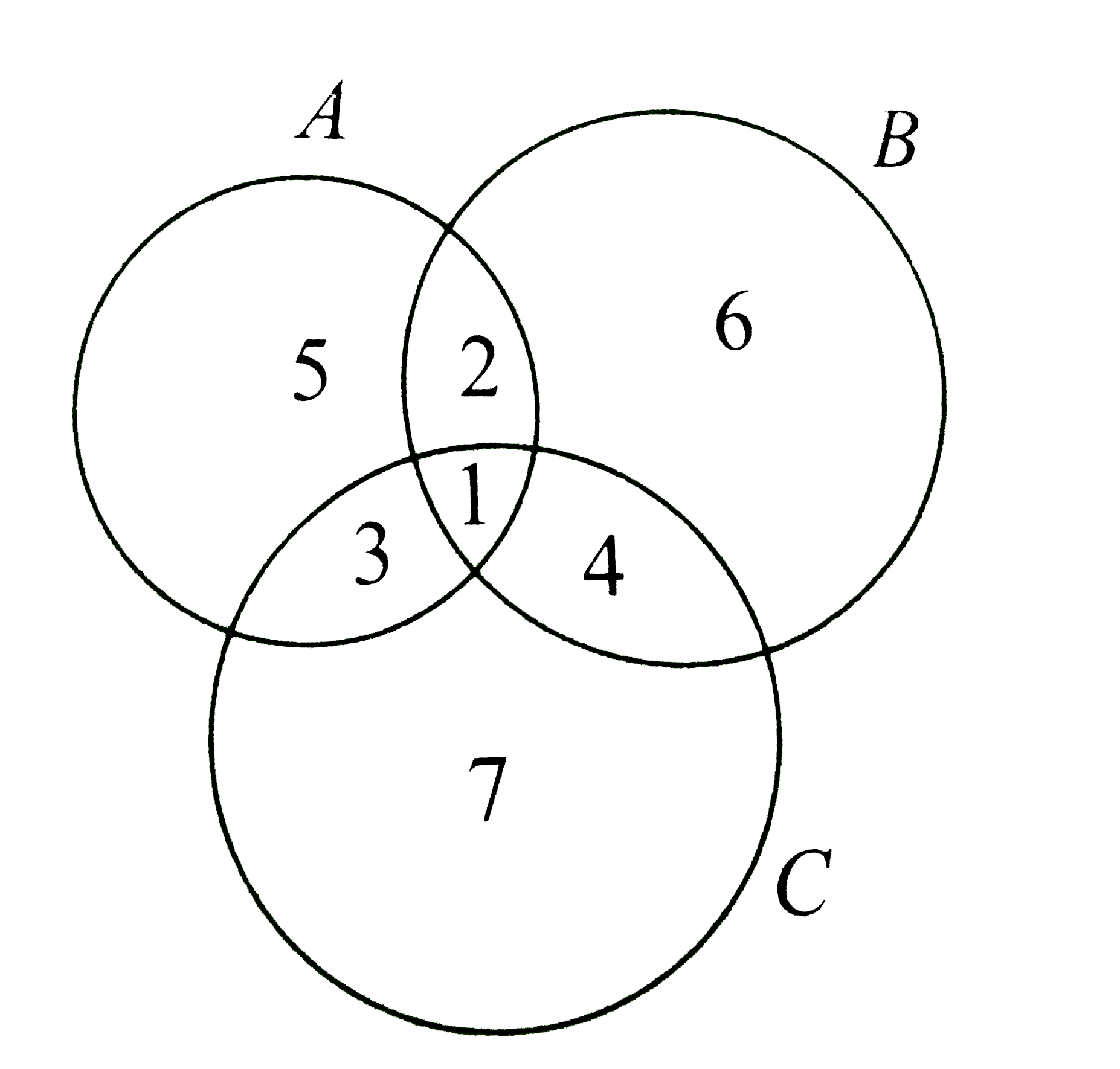Let U be the universal set and A∪B∪C=UThen[(A−B)∪(B−C)∪(C−A)]equals
A
A∪B∪C
B
A∩B∩C
C
A∪(B∩C)
D
A∩(B∪C)
Video Solution
Text Solution
The correct Answer is:B

A−B→ Regions 3 and 5 .
B−C→Regions 2 and 6
C−A→Regions 4 and 7
∴(A−B)∪(B−C)∪(C−A)→Regions 2,3,4,5,6,7
∴{[(A−B)∪(B−C)∪(C−A)'→ Region 1 which is
A∩B∩C
|
Topper's Solved these Questions
- SET THEORY AND REAL NUMBER SYSTEM BOOK - CENGAGECHAPTER - SET THEORY AND REAL NUMBER SYSTEM EXERCISE - Archieves
1 Video
- SET THEORY AND REAL NUMBER SYSTEM BOOK - CENGAGECHAPTER - SET THEORY AND REAL NUMBER SYSTEM EXERCISE - Exercise 1.5
12 Videos
- SEQUENCE AND SERIESBOOK - CENGAGECHAPTER - SEQUENCE AND SERIESEXERCISE - Question Bank
36 Videos
- SETS AND RELATIONSBOOK - CENGAGECHAPTER - SETS AND RELATIONSEXERCISE - Question Bank
15 Videos
Similar Questions
Knowledge Check
Let U be the universal set and A∪B∪C=U . Then {(A−B)∪(B−C)∪(C−A)} is equal to -
AA∪B∪CBA∪(B∩C)CA∩B∩CDA∩(B∪C)(A−B)∪(B−A)=?
A(A∪B)∪(A−B)B(A∪B)∪(A∩B)C(A∪B)−(A∩B)D(A−B)∩(A−B)Let U be the universal set and A∪B∪C=U . Then {(A−B)∪(B−C)∪(C−A)} is equal to -
AA∪B∪CBA∪(B∩C)CA∩B∩CDA∩(B∩C)
The set (A∩B')∪(B∩C) equals
View SolutionFor sets (A∪B)∪(A∩B) equals
View SolutionIf A,B,C be three sets, then A∩(B∪C)=?
View SolutionIf n(U) = 25, n(A) = 12, n(B)=11, n(A∩B)=4, where U is the universal set, A and B are sub-sets of U, then n((A∪B)') is equal to
View SolutionLet U be the universal set B, C are sub-sets of U. If A = B∪C, then U -(U - ((U-A')))) is equal to
View Solution
